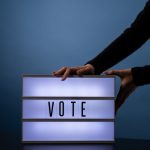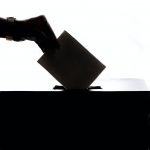Is it possible that one vote — your vote — might determine the outcome of an election? After learning how elections work, most of us quickly abandoned this apparent dream. However, the likelihood is greater than you might believe. If you live in a competitive district and vote in a competitive election, your chances of flipping a national election are about 1 in 1 million to 1 in 10 million. That’s a little possibility, but it’s a big one when compared to your odds of success in the lottery, and it’s a big one when compared to the massive impact administrations could have on the world.
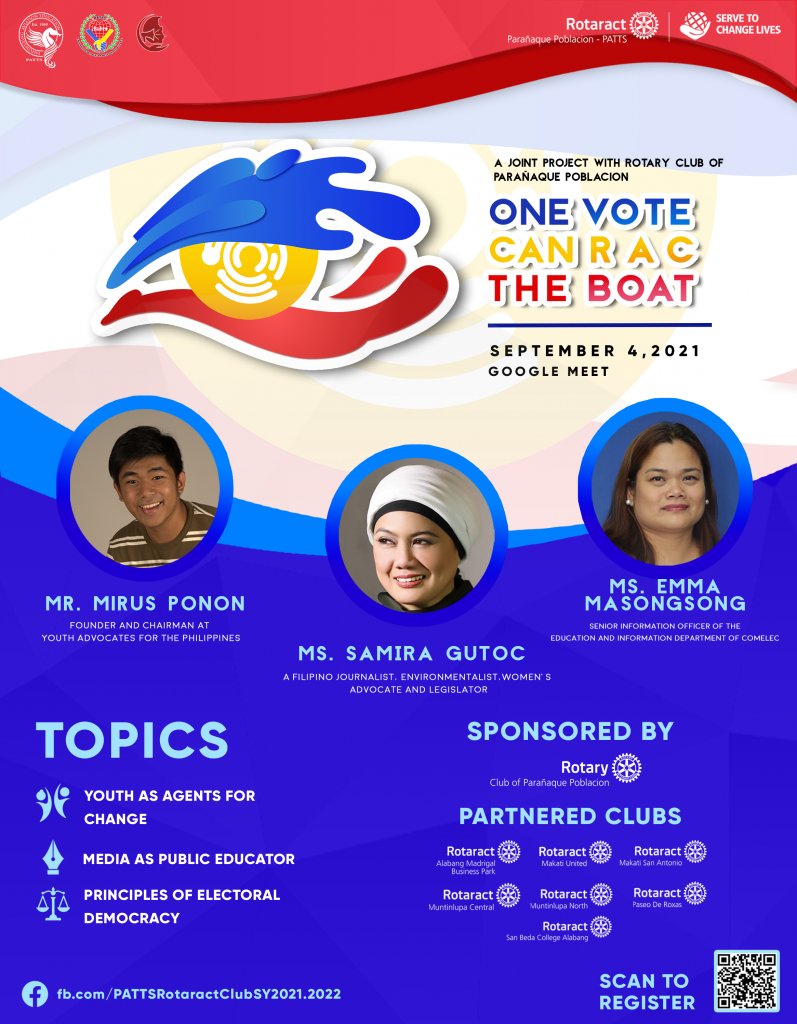
The feeling of futility is one of the most frequently mentioned reasons for individuals not voting… They don’t believe their vote counts; they feel they have no influence on government and vice versa; and they believe “special interests” control everything, therefore their ballots are meaningless. This manner of thinking needs to be abandoned. Voting is a civic duty that we are given when we reach the age of eighteen.
The ROTARACT Paranaque Poblacion – PATTS College of Aeronautics conducted its first event for the Academic Year 2021-2022 with a theme of “One Vote can RAC the Boat” on September 04, 2021. The discussion aims to bring together participants across disciplines, especially the youths that will help them enlighten their minds to make the right decisions to step up and register to vote. Younger generations in this country are seeing a dramatic drop in political involvement. If the youth do not voice their thoughts and objectives for society, the leaders of our country will pursue goals that are not in the best interests of the people.
YOUTH AS AGENTS FOR CHANGE
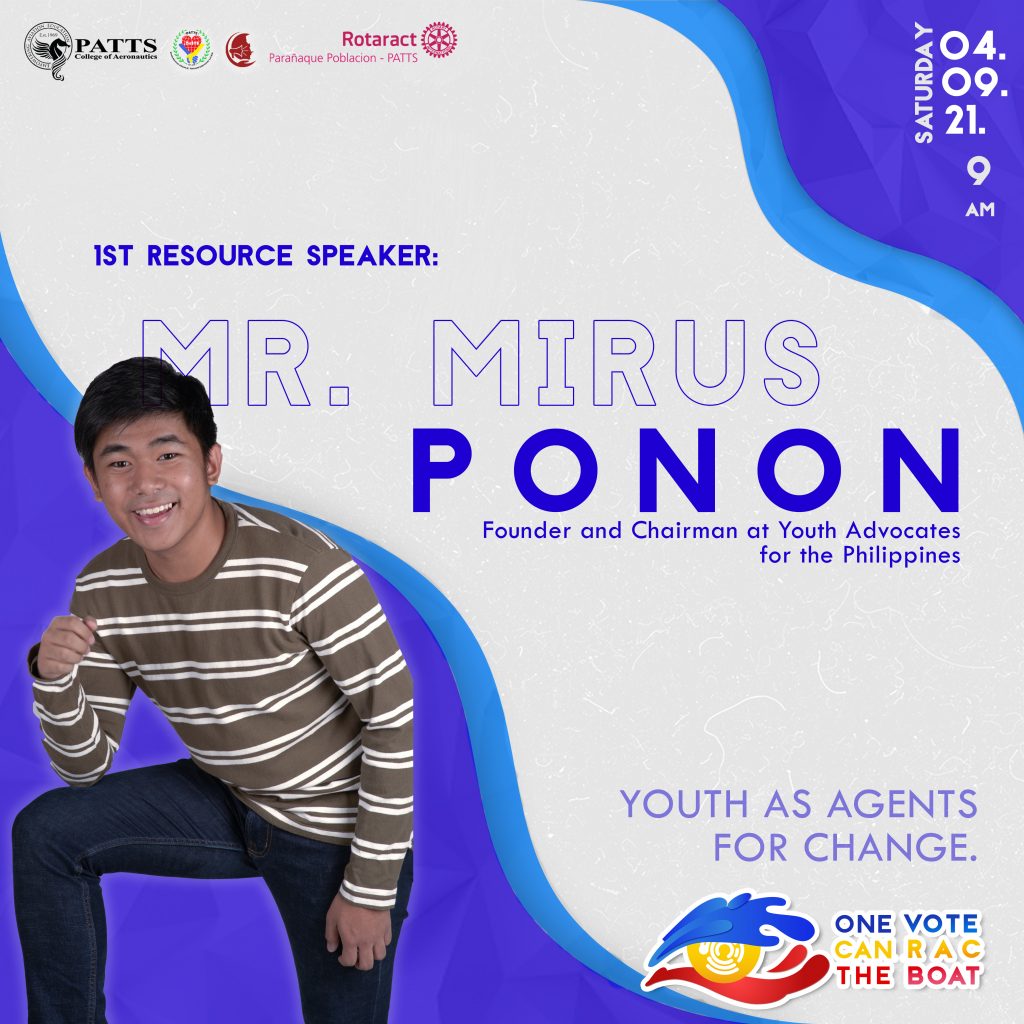
On the said event Mr. Mirus Ponon (Founder and Chairman of Youth Advocates for the Philippines) started the discussion about youth as agents for change. As the Philippines’ national elections in 2022 approach, young Filipino voters are reminded once again that the politicians they elect will shape their future. The growing unwillingness of young people to participate in politics and utilize their right to vote is particularly concerning and indicates a democratic deficit. As a result, reversing this trend and re-engaging youth in the political and democratic process is critical. While it is just one of many methods for teenagers to get involved, it is a strong opportunity for them to have a say in issues that affect them and their communities. Their votes have a lot of clout and can potentially make a difference. Elections are ubiquitous and regular opportunities for civic participation and development, and they can also serve as gateways to other forms of participation, because they take place everywhere.
MEDIA AS A PUBLIC EDUCATOR
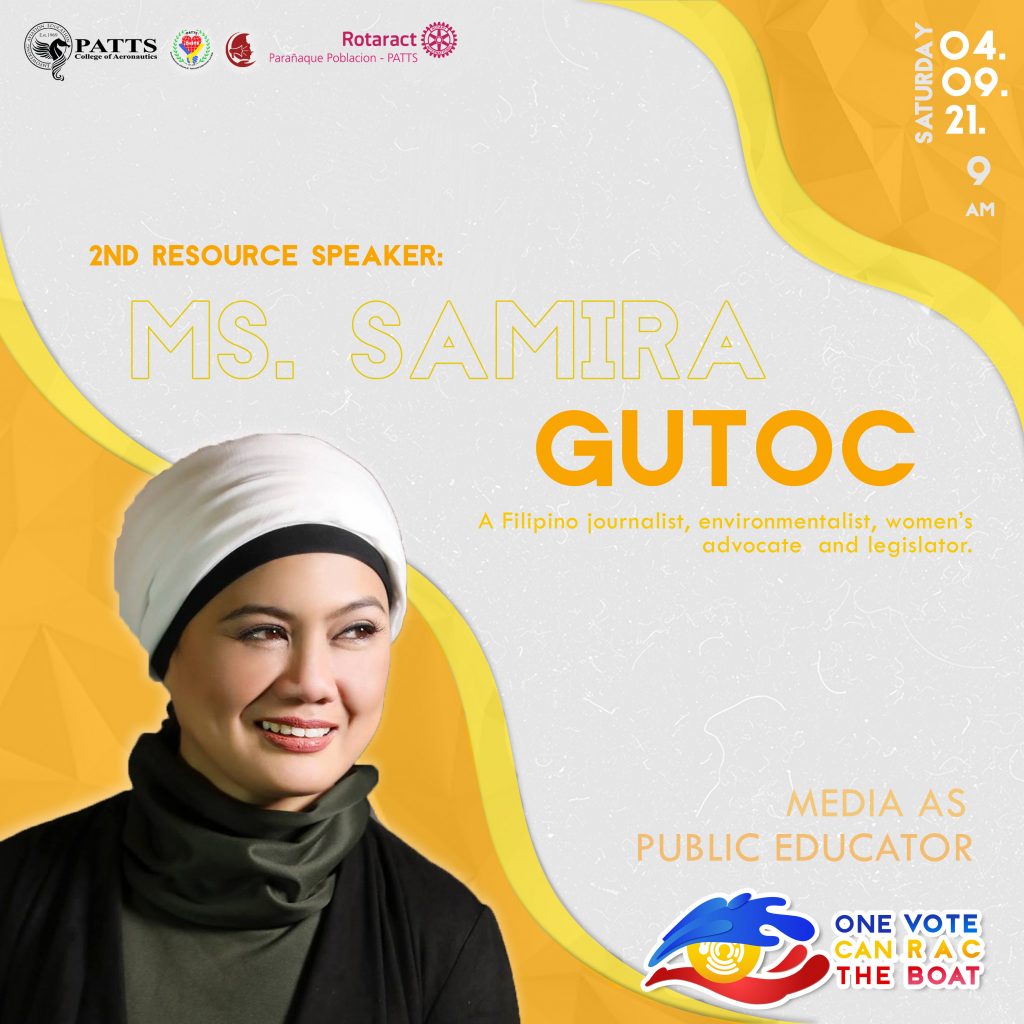
Ms. Samira Gutoc, a journalist, environmentalist, Women’s Advocate, and a Legislator, reminded the participants opinion polls are important as they give a sense of not only how popular a party is but also its leader and particular policies. Opinion polls may therefore lead to a change in policy direction or even a change in party leader. In any society, the media plays a critical role in keeping citizens informed about current events and creating awareness about various concerns. It also has a huge influence on the public’s perceptions and way of thinking. The media is the most important tool for shaping and manipulating public opinion. If the media plays this function in the usual course of events, it becomes much more important during extraordinary times, such as election seasons, when the media becomes a main actor. Elections present the media with a fundamental challenge, putting its neutrality and objectivity to the test.
The role of the media, particularly major news organizations, is not and should not be to serve as a megaphone for any government agency or politician. Its primary function is to inform and educate the public, as well as to serve as a neutral, impartial forum for the free exchange of ideas from all perspectives.
PRINCIPLES OF ELECTORAL DEMOCRACY
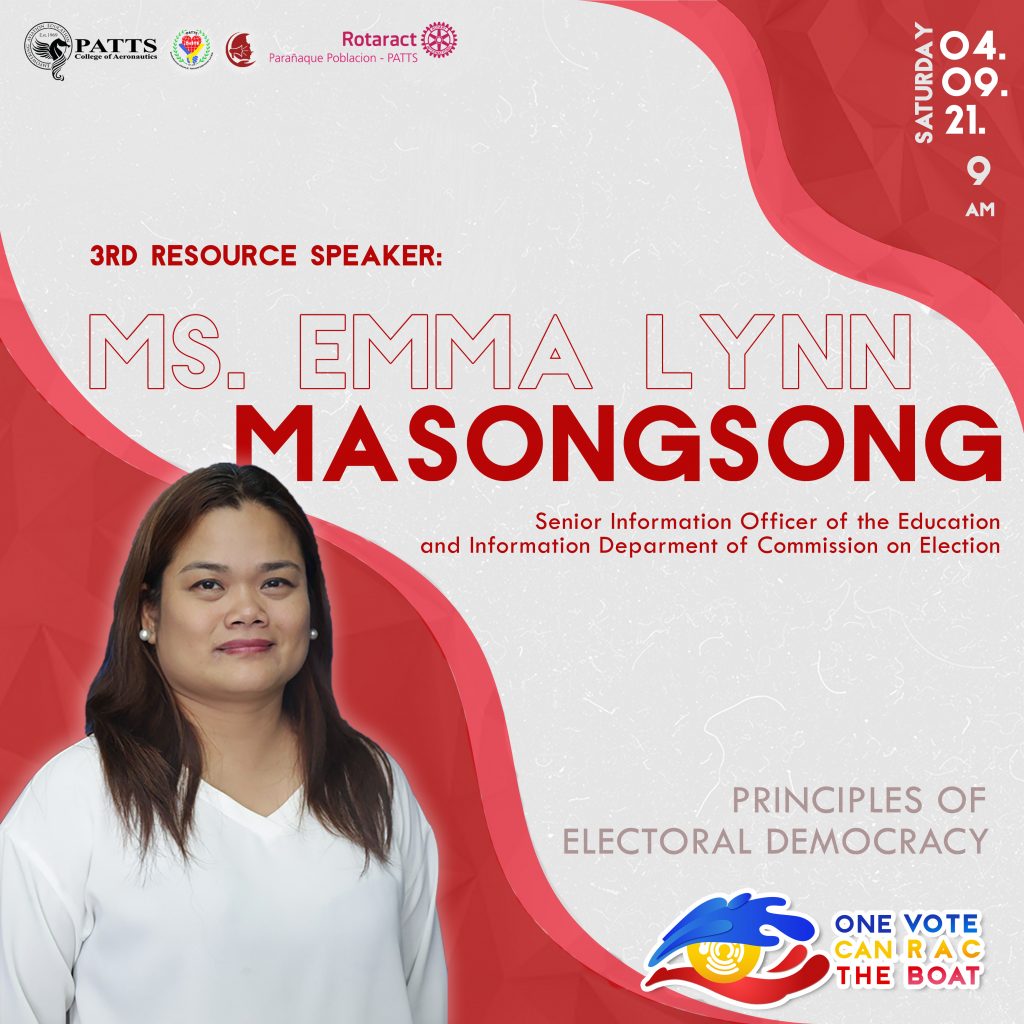
Ms. Emma Lynn Masongsong, a Senior Information Officer of the Education and Information Department of COMELEC ended the discussion as she talked about the principles of electoral democracy and what are the things to keep in mind in voting registration.
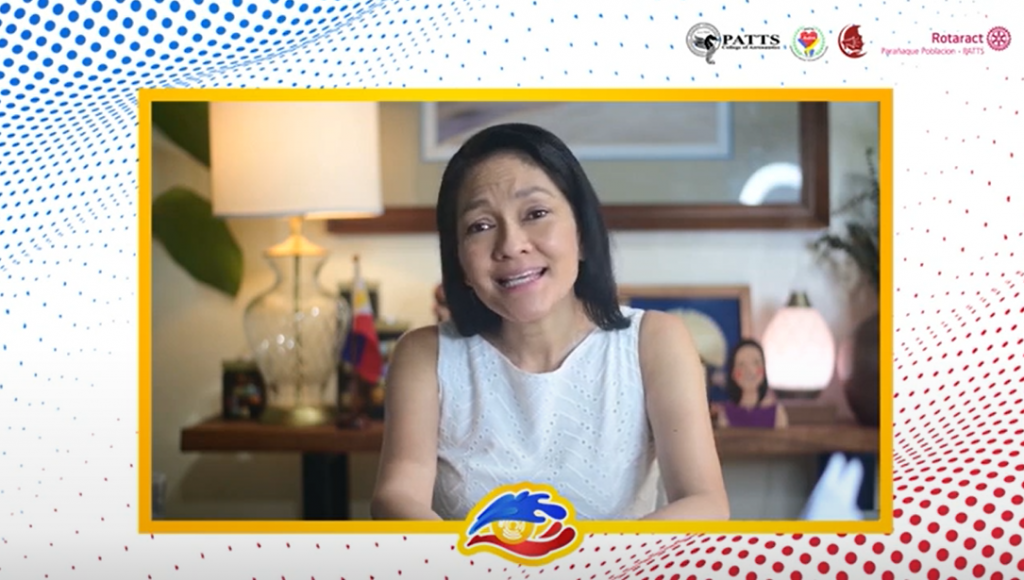
Democracy entails the use of election procedures to choose which citizens will be entrusted with essential government functions. In a positive view, it is demanded that all people be allowed to participate in political choices through representatives chosen by universal, free, equal, direct, and secret suffrage. In a nutshell, the idea of “one person, one vote” was established.

There is no better way to heal our country than using your right to vote, regardless of who you support or what you think. We exist to help young people gain political power by meeting them where they are and engaging and empowering them to participate.

